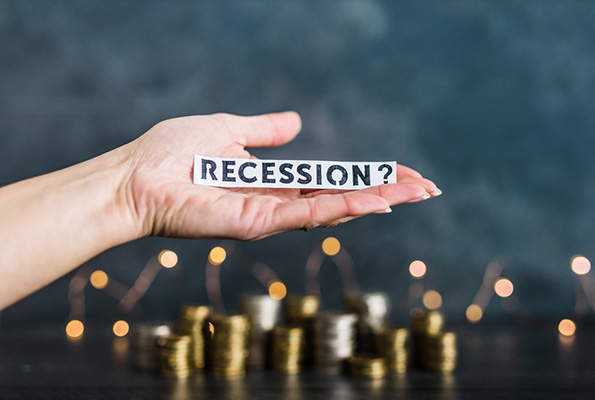As the world combats an economic slowdown, UAE’s growth is expected to be a moderate one over the next couple of years due to slower expansion in the oil sector, as per economists’ predictions.
UAE registered a brilliant performance on the economic front in 2022 and this phenomenon was primarily driven by the oil sector, as hydrocarbon GDP growth was 14.3% in the first nine months of that year.
Non-oil sectors too strongly contributed to Emirati’s growth journey, as sectors like real estate, tourism, trade and aviation sectors performed well. The non-oil economy was estimated to grow 5.6% in 2022, and Dubai’s largest bank projected a more moderate expansion of 3.5% for 2023.
During an interaction with Khaleej Times, Mena economist at Emirates NBD Research, Daniel Richards said, “We expect growth in the UAE to settle to a more moderate rate over the next couple of years compared with that seen in 2022. We forecast real GDP growth of 3.9 per cent this year and 4.3 per cent in 2024, compared with an estimated 7.6 per cent last year.”
“Our estimated 13 per cent increase in oil GDP recorded last year will not be repeated with Opec+ oil production curbs in place once more to start the year. We forecast that oil GDP growth will slow to 5.0 per cent this year,” Daniel Richards added further.
Emirates NBD Research also said that the 3.5% non-oil GDP projection for 2023 “still represents a respectable pace of growth in a period when the world’s major developed economies are flirting with the oil economy.”
Earlier in January 2023, World Bank also forecast slower growth for 2023 and 2024 at 4.1% and 2.3%, respectively, as compared to 5.9% in 2022.
Similarly, Oxford Economics expects 3.5% real GDP growth in 2023 as against 7.9% in 2022.
Oil prices have declined from their mid-2022 peak amid demand concerns, and this downward trend will likely continue in 2023 as the signs and concerns over an impending recession are only getting larger day by day.
Capital Economics senior emerging markets economist Jason Turvey said that the OPEC+ is widely expected to agree to co continue with its existing oil output quotas, which means the oil sector will act as a drag on the Gulf Cooperation Council economies in the early part of the year.
For Dubai, Emirates NBD Research projected 5.0% growth for 2022, slower than the 6.2% clocked in the previous year.
“In 2023, we forecast a further slowdown to 3.5 per cent growth as Dubai is not immune from the headwinds facing the global economy given its small and open nature. Global trade flows have been slowing in recent months and will likely continue to do so, posing a challenge for the large logistics and warehousing sector,” Jason Turvey remarked.
However, there is good news as well, as two of the biggest UAE banks posted a jump in their annual profits, topping estimates, after the country’s strong economic growth helped to drive an increase in margins and net interest income.
Profit at First Abu Dhabi Bank PJSC rose 7% to 13.4 billion dirhams ($3.6 billion) after the lender’s “core businesses sustained positive momentum, resulting in double-digit growth in loans and deposits,” it said in a statement.
The bank’s income also rose by 10%, boosted by a 23% growth in net interest income and gain on the sale of a majority stake in payments business Magnati.
In a statement, FAB Chief Executive Officer Hana Al Rostamani said, “Underlying operating performance across our core businesses was sustained during the fourth quarter despite a more challenging global macroeconomic outlook. This has provided us headroom to further build provision buffers, and take a conservative stance on asset valuations.”
Meanwhile, profit at Emirates NBD PJSC surged 40% to Dh13 billion, while impairment charges fell 12% to Dh.5.2 billion dirhams.
Dubai’s biggest bank “maintained strong income growth momentum, kept a firm control of costs, and benefited from writebacks and recoveries, reflecting a healthy regional economy,” CEO Shayne Nelson said in a statement.
The UAE looks “very immune if a recession in the world economy materializes this year,” Thani Al-Zeyoudi, the country’s minister of state for foreign trade, told Bloomberg TV recently.



